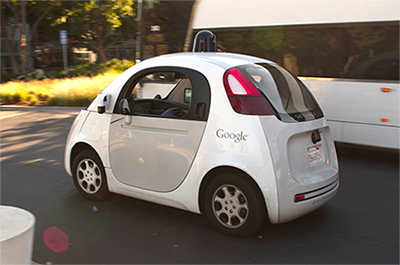 |
 |
In This IssueYardi is Listed in Forbes’ Client News Rivenhall Real Estate Limited Adopts Yardi Genesis2 » Brasier Freeth Prepares for Portfolio Growth with Yardi Genesis2
Clients in Focus Tailored Solutions for International Real Estate Management – a JLL Case Study »
Product & Technology Driverless Vehicles – How AV’s Will Reshape Real Estate »
Yardi News
Industry Trends Think Tank – Is Mixed-Use the New Normal? » EventsClients Enjoyed a Successful YASC Europe » Yardi Takes Part in EXPO REAL for the 12th Year Running » PropTech Was High on the Agenda at the First Annual UKAA Dinner, Conference, and Exhibition » Yardi’s Regional Director Speaks on the PropTech Panel at RICS Commercial Conference » PRS Forum 2017, London – 22 February» MIPIM 2017, Cannes – Shopping Centre Management Conference, 22-23 March »
ContactUnited Kingdom
|
Product & TechnologyDriverless Vehicles – How AV’s Will Reshape Real EstateSay “goodbye” to road rage and say “hello” to calm commutes that allow and encourage multitasking. In about two decades, getting from your suburban home to your office in the city’s CBD may become a relaxing, short ride. Automated vehicles (AVs) are becoming the key to future commuting and urban mobility. Major global companies, including Google, Apple, Intel, Ford, Tesla and BMW (to name a few), are investing millions in the technology that is expected to affect everything from community development, transport infrastructure and hospitality to multifamily and commercial real estate. By 2040, specialists and analysts expect AVs to be omnipresent in the U.S. So what does that mean? First of all, there will be fewer cars. For example, families can use only one car to get to work or take the kids to school or grandma to the doctor’s office. The concept of “car sharing” is expected to become the norm in the next two decades. Consequentially, entryways to multifamily residential communities may have to be redesigned to fit a higher volume of cars, since traffic is expected to increase with several AVs going in and out for pick-ups (in the morning) and drop-offs (in the afternoon). Developers can also change focus from creating expansive parking lots, and instead build better public spaces and amenities.
Fewer parking spaces will be the main and most important change the AVs will produce in connection to real estate. Parking spaces are an essential regulatory issue for new developments, especially in core urban markets, and it has been considered a drawback by developers who can actually get a lower return because of pricy construction works for building underground parking spaces. This will change because of decreased car ownership. The land that is now occupied by extensive parking decks or surface lots will become valuable real estate that could be used for creating much needed public green spaces, entertainment or housing units. In the end, this could encourage more dense projects that are now impacted by strict parking regulations. Many of the country’s gas stations and convenience stores might disappear, clearing even more valuable land for investment. Bisnow reported that there are about 125,000 such gas stations/convenience store compounds in the U.S. However, some of these could be transformed into service and charging stations, temporary parking facilities for AVs waiting for their next pick-up mission or garages where these vehicles are kept overnight or are retained for repairs. A change in the way we drive may mean a change in where we live. Over the last decade, the trend has moved towards city centers, which offer easy mobility and access to leisure and entertainment facilities. However, with shorter and less stressful commutes, the interest for suburban housing is expected to rise again. Driverless vehicles are more efficient and need less space to move on roads, as they are more precise. This will influence the industrial sector, which could migrate even further outside the cities. Self-driving trucks are already a reality, impacting the cost and convenience of delivery services. The industrial sector can use AVs for quick same-day delivery services from smaller warehouse units based in and around the city. Making suburbs more accessible could trigger economic development in these areas. In conclusion, the revolution in the auto world is expected to influence the design and focus of real estate development. Transport infrastructure will also have to adapt, as experts predict we will need fewer roads. The optimistic scenario involves a greener approach to traffic, with more bicycle lanes, electric AVs and fewer cars on the roads. The reverse would be a world where everyone wants an AV in their garage, as a result of limitless consumerism. Only time will tell where the road will take us. |
 |
|
| Asia | Australia | Europe | Middle East | North America |  |
Avebury House, 201-249 Avebury Blvd, Milton Keynes, MK9 1AX, United Kingdom |
